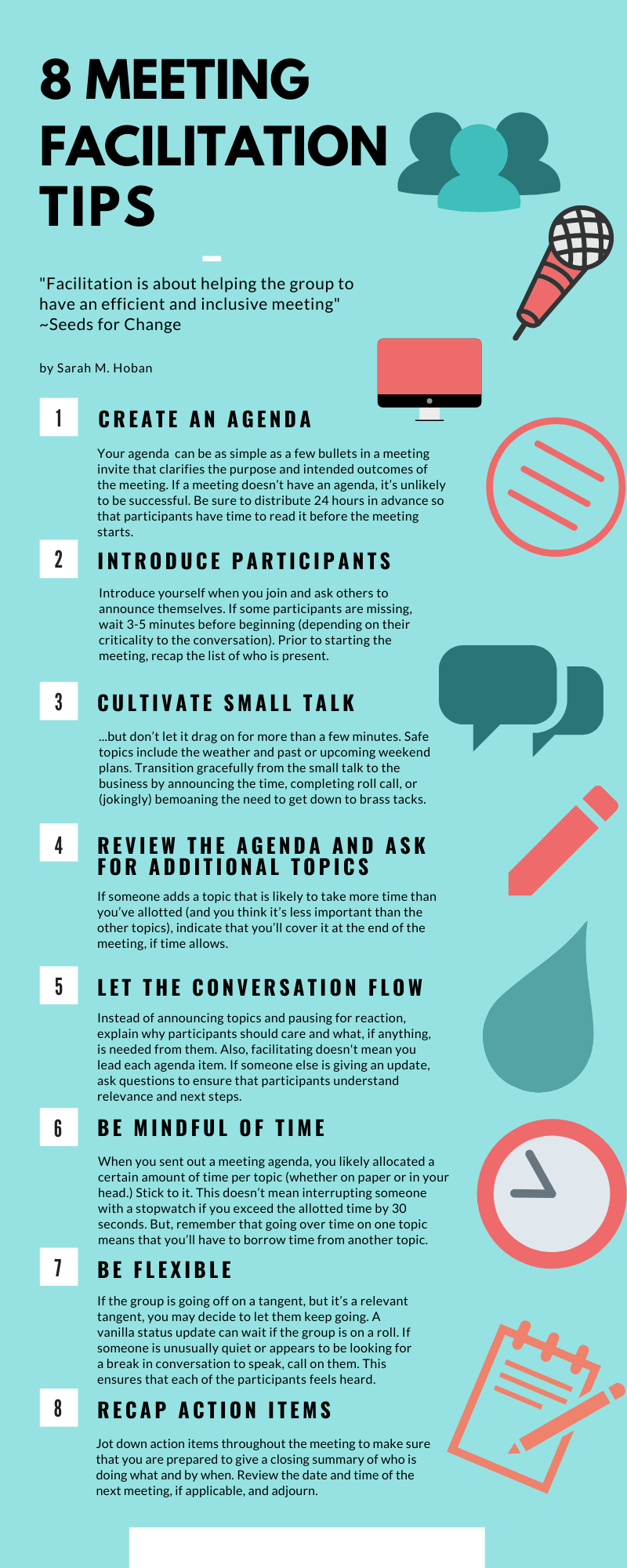The Art and Science of Meeting Facilitation
Meeting facilitation is an integral part of a project manager’s job—which makes it all the more surprising that many project managers either don’t know what it is to facilitate or don’t realize that what they’re doing is facilitation. What does it mean to facilitate a meeting? How do you facilitate a meeting well? And, how can you improve your facilitation skills?
“Facilitation is about helping the group to have an efficient and inclusive meeting.”
— Seeds for Change
What is facilitation?
I love this definition from the organization Seeds for Change—facilitation is about helping the group to have an efficient and inclusive meeting. Not only does this definition address the science of facilitation, or the mechanics of keeping the group on track, but it also hints at the other, more critical aspect of facilitation—the art.
The science of facilitation is relatively easy to master. To run a meeting efficiently, create a list of agenda items and address the topics in the time allotted. By one definition—the science—you’ve facilitated the meeting well. But, how did you come up with these agenda items? Did you leave enough time for people to propose additional topics? Most importantly, did participants actually discuss the topics on the list? For a meeting to be well run, participants should feel comfortable contributing ideas to advance the conversation. This is where the art comes into play.
So, how do you facilitate an efficient and inclusive meeting? What does it take to master the science—and the art—of meeting facilitation? Check out the infographic for 8 meeting facilitation tips:
How can you improve your facilitation skills?
So, the list of tips is all well and good, but how can you get better at facilitating meetings outside of just doing it? Maybe you’re a junior PM trying to take the next step to lead client meetings. Maybe you’re advanced in your career but you either don’t find your meetings productive or—the worst!—catch people falling asleep while you’re talking. Here are some suggestions for how to improve:
Over prepare. Make sure you know the meeting topics backwards and forwards. Anticipate questions that the client or other meeting participants may ask you. Imagine you’re preparing for a big political speech or testifying in court. What would you need to know to do well?
Practice in a safe environment. Hold a mock facilitation session with a teammate. Pretend they are the client and have them ask you difficult questions while you’re running the meeting so you can figure out how to respond on the fly.
Take training in meeting facilitation and emotional intelligence. These types of courses will help you get better at reading the room. Should you spend more time on a particular topic? Or do people seem annoyed by how slowly the meeting is proceeding? Looking at body language for in person meetings can be a powerful indicator. For phone meetings, pay close attention to tone.
Avoid multi tasking. Short of keeping notes while the group is talking, you shouldn’t be doing anything else other than facilitating. And, if you think that you shouldn’t have to take notes and facilitate a meeting at the same time, guess again. I can’t tell you how many times I’ve been in this situation in my career. It may not be easy or pleasant, but you’ll have to figure it out eventually. In these cases, shorthand is your friend. Also, don’t be afraid to tell people you’re jotting down a few notes if you need a 30-second pause.
Conduct a post-mortem. Ask for feedback from other participants you trust on how you can smooth the rough edges.
